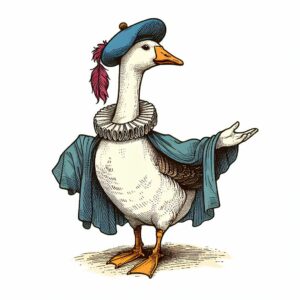Much like modern American politics, the authorship question isn’t worth discussing. People will believe what they want to believe, ignoring any evidence to the contrary and stretching the limits of imagination to invent “evidence” that supports their point.
This week, some new research adds to the mix, suggesting that authors during Shakespeare’s lifetime also thought it was the other guy writing the works.
Let me see if I can sum up. There’s this book that we know about by a guy named Meres. It days from 1590. It’s a book of lists. More to the point, “symmetrical” lists — 8 Greek writers, 8 Latin writers, and 8 English writers. Well, brace yourselves – some of the lists aren’t symmetrical. 6 ancient “epigrammatists” are compared to 5 modern ones. IT MUST MEAN SOMETHING, PEOPLE!
WAIT! It gets better! One of the modern names is Davies, which could be two people. So it’s technically symmetrical; see how the game is played?
So guess what — there’s a list with 17 English writers and 16 modern ones. You guessed it (or did you?) both Oxford and Shakespeare appear on the list. Therefore we make the leap — those *two* must represent *one* person, to keep it symmetrical. Boom, mic drop.
<shrug> Sure? It’s not so much “evidence” as “a curious observation.” There will forever be a difference between “this could mean something” and “this means something.” The problem, then, is that there is an infinite amount of “this could mean something.” They are all equally trivial.
“When the lists aren’t symmetrical, there’s a reason for it.” The whole thing reminds me of a great Dad joke. Have you ever seen geese flying in that V-formation like they do? Do you notice how sometimes one side of the V is longer? Do you ever wonder why that is?
There are more geese on that side.


” Do you notice how sometimes one side of the V is longer? Do you ever wonder why that is?
There are more geese on that side.”
Nah. It’s because, like anti-Stratfordians, geese can’t count.